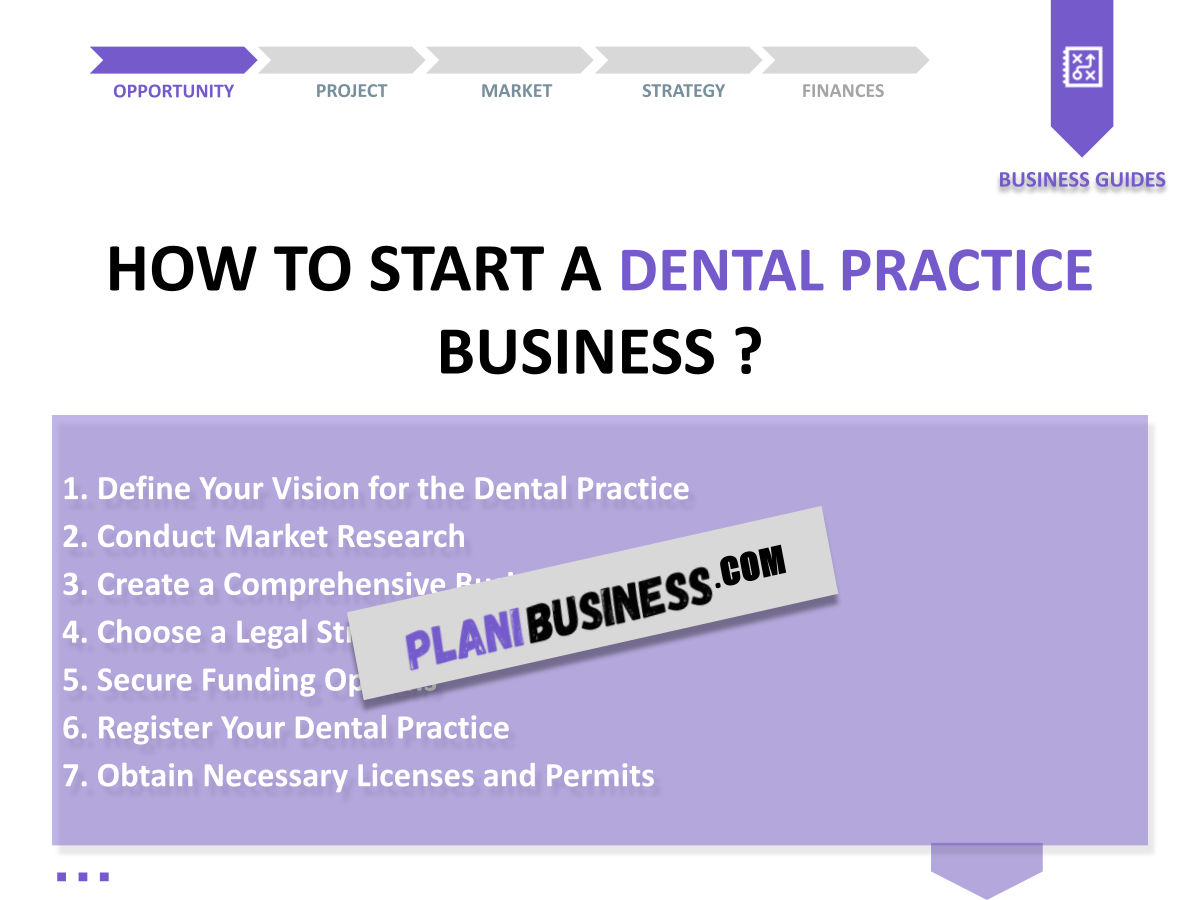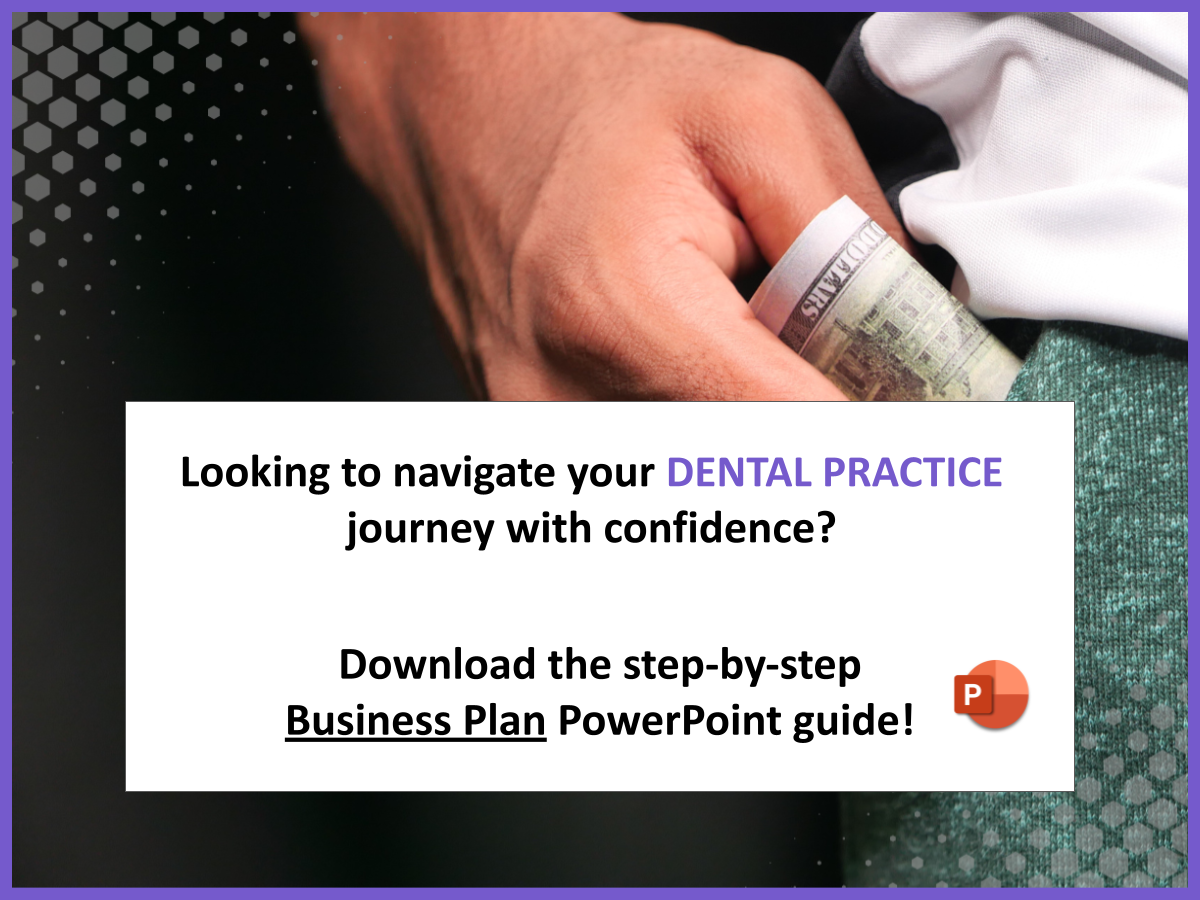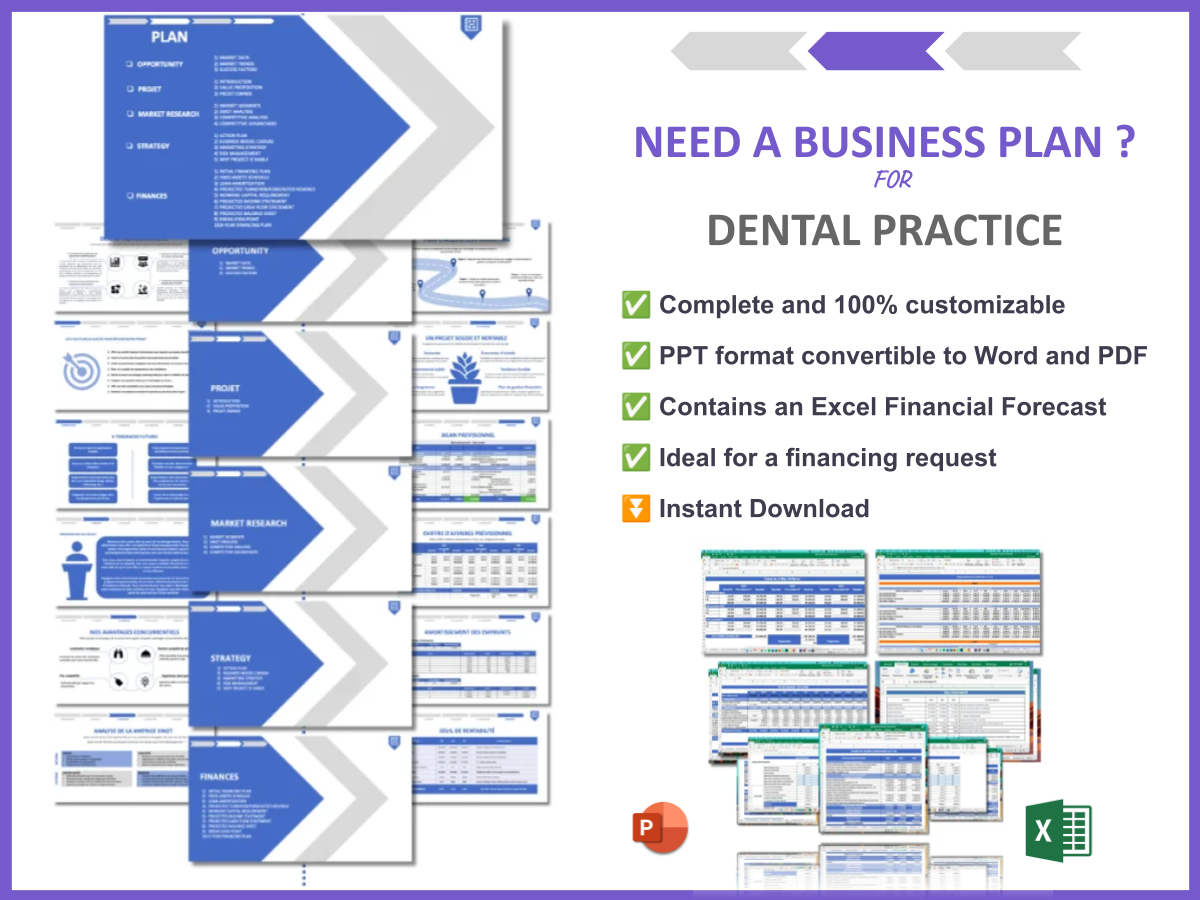Are you considering starting your own dental practice? You’re not alone! Many aspiring dentists dream of launching their own clinics, but the path can be tricky. Did you know that over 70% of dental graduates want to own their own practice? However, only a fraction actually take the leap. This statistic underscores the importance of understanding how to start a dental practice effectively.
**How to Start a Dental Practice** involves more than just clinical skills; it requires strategic planning and a solid foundation. Essentially, it’s about creating a business that not only provides excellent dental care but also thrives in a competitive market.
In this article, we will cover:
– The essential first steps in launching your dental practice.
– How to conduct thorough market research.
– Crafting a solid business plan.
– Choosing the right legal structure for your practice.
– Securing funding and resources.
– Registering your business and obtaining necessary licenses.
– Setting up financial management systems.
– Establishing your brand identity and online presence.
– Effective marketing strategies.
– Building a reliable dental team.
– Ensuring long-term success.
1. What is the first step in learning how to start a dental practice?
Starting a dental practice begins with defining your vision. Think about what kind of services you want to provide and the patient experience you aim to create. This initial step lays the foundation for everything else.
- Identify your target audience. Consider who your ideal patients are. Are they families, seniors, or young professionals? Understanding this helps you tailor your services to meet their needs.
- Determine your unique selling proposition (USP). What sets your practice apart from others? This could be specialized services, advanced technology, or a focus on patient comfort.
- Consider your ideal location and community needs. Research the area where you want to set up. Is there a demand for dental services? What are the demographics like?
2. How to conduct market research for your dental practice?
Understanding your market is crucial. You’ll want to know who your competitors are and what they offer. Analyze local demographics and identify gaps in the market that your practice can fill. This knowledge will help you position your practice effectively.
| Research Method | Description |
|---|---|
| Surveys | Gather feedback from potential patients about their needs and preferences. |
| Competitor Analysis | Review services, pricing, and patient reviews of nearby practices to understand what works and what doesn’t. |
| Community Engagement | Attend local events to connect with potential patients and understand their needs better. |
By utilizing these methods, you can develop a comprehensive understanding of the market landscape, which is essential for the success of your dental practice. Plus, engaging with the community can also help you build relationships that will benefit your practice in the long run.
3. What should you include in your dental practice business plan?
A solid business plan is essential for any startup, especially when learning how to start a dental practice. It should clearly outline your vision, mission, and strategies for success. A well-structured business plan not only helps you stay organized but is also crucial when seeking funding or partnerships.
Here are the key components to include in your business plan:
- Executive Summary: A brief overview of your practice, including your mission statement and what you aim to achieve.
- Market Analysis: Insights gathered from your market research, including target demographics and competitor analysis.
- Marketing Strategy: Outline how you plan to attract and retain patients. This includes advertising, social media, and community outreach efforts.
- Financial Plan: Detailed projections of your startup costs, revenue forecasts, and break-even analysis.
- Operational Plan: Information about the day-to-day operations, staffing needs, and management structure.
I recommend checking out this business plan template for Dental Practice. It’s super detailed and can save you a ton of time!
4. How to choose a legal structure for your dental practice?
Deciding on a legal structure is a key step when learning how to start a dental practice. The legal structure you choose will affect your taxes, liability, and business operations. You can choose from several options, each with its pros and cons.
| Structure Type | Pros | Cons |
|---|---|---|
| Sole Proprietorship | Simple to set up, complete control over decisions. | Unlimited personal liability for business debts. |
| Partnership | Shared responsibilities and resources, easier to raise funds. | Shared profits and potential for disputes. |
| Corporation | Limited liability, potential tax benefits. | More complex to manage, stricter regulations. |
When deciding, consider factors like the number of owners, your risk tolerance, and how you plan to raise funds. Consulting with a legal professional can help you navigate these options and choose the best structure for your practice.
5. What funding options are available for starting a dental practice?
Securing funding is crucial for your dental startup. There are various avenues to explore, and understanding them can help you determine the best option for your situation. Whether you are looking for a traditional loan or alternative funding sources, it’s important to have a clear financial plan in place.
- Bank Loans: Traditional bank loans are a common choice. You will typically need a solid business plan and good credit history to qualify.
- Small Business Administration (SBA) Loans: These loans are backed by the government and often have lower interest rates. They can be a great option for new dental practices.
- Private Investors or Venture Capital: If you have a unique business model, you might attract private investors. This option often requires giving up some equity in your practice.
Be sure to prepare a strong pitch to attract potential investors or lenders. Having a detailed financial plan and clear goals will significantly enhance your chances of securing funding.
6. How to register your dental practice?
Registering your dental practice is an essential step in making it official. This usually involves choosing a business name and filing for the necessary licenses and permits in your state. The registration process can vary by location, but here are the general steps to follow:
- Choose a Unique Business Name: Make sure it reflects your practice and is easy to remember. Check for name availability in your state.
- Register with the State’s Business Registry: This is typically done through the Secretary of State’s office. You’ll need to fill out specific forms and pay a registration fee.
- Apply for a Federal Employer Identification Number (EIN): This number is necessary for tax purposes and is required if you plan to hire employees.
Additionally, you may need to register for state and local taxes, so be sure to check the specific requirements for your area. Proper registration not only legitimizes your practice but also protects your business name and brand.
| Step | Description |
|---|---|
| Choose Business Name | Select a name that reflects your practice’s values and services. |
| Register with State | File necessary forms and fees with your state’s business registry. |
| Obtain EIN | Apply for an Employer Identification Number through the IRS. |
By completing these steps, you’ll be on your way to officially launching your dental practice and starting your journey in the dental field!
7. What licenses and permits do you need for your dental practice?
Before you can start treating patients, you need to obtain the required licenses and permits. These vary by state but often include a dental license, business license, and health department permits. Understanding the necessary regulations is crucial for compliance and the successful operation of your practice.
- State Dental Board License: This license is mandatory to practice dentistry legally. You must pass both written and clinical exams to obtain it.
- Business Operation License: Most states require a general business license to operate legally. Check with your local government for specific requirements.
- Health Department Permits: You may need permits from your local health department to ensure that your practice meets health and safety standards.
It’s essential to research the specific requirements in your state, as failing to secure the proper licenses can lead to hefty fines or even the closure of your practice. Consider consulting with a legal professional to ensure that you meet all regulatory requirements.
| License/Permit | Description |
|---|---|
| State Dental Board License | Mandatory license for practicing dentistry, requiring exams. |
| Business Operation License | General license to operate your business legally. |
| Health Department Permits | Permits ensuring compliance with health and safety standards. |
8. How to set up your financial management systems?
Having a solid financial management system in place is critical for your dental practice. This includes accounting software, billing systems, and budgeting tools to keep track of expenses and revenue. Without proper financial management, even a well-run practice can face significant challenges.
- Choose Accounting Software: Select software that fits your practice size and complexity. Popular options include QuickBooks, Xero, and Dentrix.
- Implement a Billing System: Ensure you have a streamlined process for billing patients and insurance companies. This will help improve cash flow and reduce outstanding payments.
- Establish a Budget: Create a detailed budget for your first year of operation. Include all expected expenses such as rent, salaries, supplies, and marketing costs.
Additionally, regularly reviewing your financial statements can help you make informed decisions and adjust your strategies as needed. Keeping a close eye on your finances is essential for the long-term success of your practice.
9. How to establish your dental practice brand identity?
Your brand identity is how your practice will be perceived by patients. It should reflect your values and the quality of care you provide. Establishing a strong brand identity is crucial for attracting and retaining patients as you learn how to start a dental practice.
- Create a Logo: Design a logo that represents your practice and resonates with your target audience. A memorable logo can help establish trust and recognition.
- Develop a Consistent Color Palette: Choose colors that convey the right emotions and match your practice’s personality. Consistency across all marketing materials is key.
- Design Marketing Materials: Create brochures, business cards, and other marketing materials that reflect your brand. Ensure that they are visually appealing and informative.
Branding goes beyond just visual elements; it includes the tone of voice in your communications and the overall patient experience in your office. Building a strong brand identity can significantly impact your practice’s success and help you stand out in a competitive market.
| Brand Element | Description |
|---|---|
| Logo | A visual representation of your practice that fosters recognition. |
| Color Palette | Colors that reflect your practice’s personality and values. |
| Marketing Materials | Brochures, business cards, and online content that communicate your brand. |
10. What should your dental practice website include?
In today’s digital age, a professional website is a must. Your website should provide essential information about your services, staff, and how to contact you. A well-designed website can be a powerful tool for attracting new patients as you learn how to start a dental practice.
- Service Descriptions: Clearly outline the dental services you offer, including any specialties. This helps potential patients understand what to expect.
- Contact Information: Ensure that your phone number, email, and office address are easily accessible. Consider adding a contact form for inquiries.
- Patient Testimonials: Showcase positive reviews and testimonials from satisfied patients. This builds trust and credibility for your practice.
Additionally, make sure your website is user-friendly and mobile-optimized. With more people searching for dental services online, having a strong web presence is vital for your practice’s success.
11. How to market your dental practice effectively?
Marketing your dental practice involves both online and offline strategies. As you learn how to start a dental practice, effective marketing can help you attract and retain patients. Here are some key strategies to consider:
- Build a Presence on Social Media: Use platforms like Facebook and Instagram to engage with potential patients. Share educational content, promotions, and behind-the-scenes glimpses of your practice.
- Optimize Your Website for Local Search: Implement local SEO techniques to ensure your practice appears in search results when potential patients are looking for dental services nearby.
- Participate in Community Health Fairs: Engage with your community by offering free dental check-ups or educational seminars. This builds goodwill and raises awareness about your practice.
By combining these strategies, you can create a comprehensive marketing plan that effectively promotes your dental practice and attracts new patients. Remember, consistency is key in building your brand and reputation.
| Marketing Strategy | Description |
|---|---|
| Social Media Marketing | Engage with potential patients and share valuable content. |
| Local SEO | Optimize your website to appear in local search results. |
| Community Engagement | Participate in local events to raise awareness about your practice. |
12. How to assemble your dental team?
Your team will play a significant role in the success of your practice. When learning how to start a dental practice, it’s essential to hire skilled professionals who share your vision and values. Here’s how to build an effective dental team:
- Define Roles and Responsibilities: Clearly outline what each team member will be responsible for. This includes dentists, dental hygienists, dental assistants, and administrative staff.
- Conduct Thorough Interviews: Look for candidates who not only have the right skills but also fit well with your practice culture. Ask about their experiences and how they handle patient interactions.
- Provide Ongoing Training: Invest in your team’s professional development. Regular training ensures that your staff is up-to-date with the latest techniques and technologies in dentistry.
Building a strong team can enhance patient care and create a positive work environment. Remember, happy employees often lead to happy patients!
13. What are the key factors for long-term success in your dental practice?
Long-term success requires continuous improvement and adaptability. As you navigate the challenges of running a dental practice, consider the following factors:
- Regularly Review Your Business Plan: Your business plan should be a living document that evolves as your practice grows. Make adjustments based on market changes and your practice’s performance.
- Solicit Patient Feedback: Regularly ask for feedback from your patients to identify areas for improvement. This shows that you value their opinions and helps enhance patient satisfaction.
- Network with Other Dental Professionals: Building relationships with other dentists can provide valuable insights and support. Attend dental conferences and join professional organizations to stay connected.
By focusing on these key factors, you can ensure the long-term viability of your dental practice. Stay committed to excellence, and you’ll build a practice that not only survives but thrives!
Conclusion
Starting your own dental practice can be a rewarding yet challenging journey. By following the steps outlined in this guide on how to start a dental practice, you can lay a solid foundation for your business. Remember, success in dentistry not only comes from clinical expertise but also from effective planning, marketing, and patient care.
As you continue to develop your practice, consider diving deeper into essential topics like creating a SWOT analysis to identify your strengths and weaknesses. Check out our article on how to create a SWOT Analysis for Dental Practice for more insights. Additionally, crafting a robust marketing plan is crucial for attracting new patients. For guidance on this, read our article on How to Develop a Dental Practice Marketing Plan? With Example.
Stay committed to your vision, adapt to changes in the industry, and prioritize patient care, and you’ll be well on your way to building a thriving dental practice!
FAQ
- What are the first steps to start a dental practice?
The first steps include defining your vision, conducting market research, and creating a comprehensive business plan that outlines your goals and strategies.
- How much does it cost to start a dental practice?
The cost can vary widely depending on location, equipment, and staffing needs, but initial investments can range from $100,000 to over $500,000.
- What licenses do I need to operate a dental practice?
You will need a state dental board license, a business operation license, and health department permits to operate legally.
- How do I find patients for my dental practice?
Utilize local SEO, social media marketing, and community engagement to attract patients. Building a strong online presence is essential.
- What should I include in my dental practice business plan?
Your business plan should include an executive summary, market analysis, marketing strategies, financial projections, and an operational plan.
- How can I finance my dental practice?
Consider options such as bank loans, SBA loans, private investors, or even personal savings to fund your practice.
- What marketing strategies are effective for dental practices?
Effective strategies include social media marketing, local SEO, community outreach, and patient referral programs to enhance visibility and attract new patients.
- How important is my dental practice’s online presence?
A strong online presence is crucial as most patients search for dental services online. A professional website and active social media accounts can significantly impact patient acquisition.
- What kind of team do I need for my dental practice?
You’ll need a team that may include dentists, dental hygienists, dental assistants, and administrative staff to ensure smooth operations and quality patient care.
- How can I ensure long-term success for my dental practice?
Focus on continuous improvement, regularly review your business plan, solicit patient feedback, and network with other professionals to adapt to changes in the industry.







